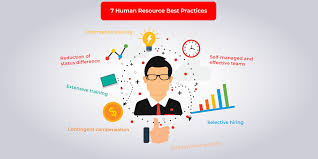
About the Author James Palmer’s message is clear: every person matters as an individual who has thoughts. Your life has worth and value. When you value yourself, you feel stronger inside. You stop chasing approval and start trusting your own path.
Many people feel lost or small sometimes. You may doubt yourself or think others are better. That’s okay. It happens to all of us. But you can change how you see yourself, and this guide can help.
Understand Your Unique Worth
You hold a mix of gifts, skills, and life moments no one else has. Your story is your strength, and your path is unlike any other. When you stop and think, you see what makes you special. You find your values, your passions, and what you stand for. These things guide you and shape your life. You build trust in yourself when you know what matters to you. That trust helps you choose what’s right and walk away from what’s wrong. Knowing yourself brings peace and sharp focus. You stop copying others, and you start living true. This awareness brings power, not pride. It gives you a clear voice and a strong heart. You lead your life instead of following the crowd.
Set Healthy Boundaries
When you value yourself, you guard your time and protect your energy. You don’t let others push you past your limits, and you speak up when it matters. Boundaries keep your mind calm and your heart steady. They stop stress from piling up, and they help you breathe easier. Saying “no” shows strength, and it takes care of your peace. It’s not rude to protect your space, and it’s not selfish to rest when you’re tired. You teach others how to treat you by how you treat yourself. Boundaries build safety, and they make room for joy. With clear limits, you stop running empty and start feeling full. You grow strong when you stop pleasing everyone. You begin to live, not just survive.
Celebrate Your Achievements
Look back at your wins, both big and small. Each one shows your effort and how far you’ve come. You worked hard, and every step counts. When you notice your success, you stop thinking only about your mistakes. You shift your focus from what went wrong to what went right. This change lifts your mood and clears your mind. Celebrating makes you feel proud, and it gives you the push to keep moving forward. You don’t need to be perfect, you just need to grow. Progress matters more than flawlessness. Each win reminds you that you are doing well. Keep going, and keep cheering for yourself.
Practice Self-Compassion
You speak gently to others, but you often turn cold on yourself. When you fail or feel low, you deserve the same care you give your friends. Self-compassion means staying calm when things go wrong. You show patience instead of blame, and you choose kindness over judgment. Mistakes don’t make you weak—they make you human. Being too hard on yourself only brings more pain and less hope. A soft voice inside can lift you when no one else does. When you treat yourself kindly, you heal faster and stand taller. This care builds strength in your heart and peace in your mind. You grow stronger when you stop tearing yourself down.
Challenge Negative Self-Talk
Your inner voice holds power, and it shapes how you see yourself. If you keep saying, “I’m not enough,” you start to believe it. These thoughts can grow heavy and steal your joy. You must catch those words and speak back with truth. Replace harsh lines with kind, honest ones. Say, “I’m trying,” or “I’m learning,” instead of tearing yourself down. Use words that lift you, not ones that break you. Over time, these better thoughts feel natural and strong. Your mind starts to heal, and your heart feels lighter. What you say inside becomes the life you live outside. Choose words that help you rise.
Surround Yourself with Positive Influences
The people near you shape how you see yourself. If you stay with kind hearts, you feel seen and strong. Supportive friends lift your spirit and remind you of your worth. But toxic ones drain your joy and shake your peace. Choose people who respect your space and cheer for your growth. Good company helps you heal, and it pushes you forward. A strong circle brings calm and builds your courage. When you’re valued by others, it’s easier to value yourself. Keep those who light your path and let go of those who dim it. Your peace is too precious to waste.
Invest in Personal Growth
When you learn something new, you grow from the inside out. Gaining skills builds your confidence and shows your power. Set goals that matter and try things that excite you. Take one step, then another, even if it feels small. Growth is not just about winning—it’s about showing care for yourself. Each effort, each try, proves you believe in your future. You begin to see what you can become, not just who you’ve been. Every bit of progress adds to your worth. You invest in yourself, and the reward is strength. Keep building, keep learning, and keep choosing your growth.
Practice Mindfulness and Presence
Stay where you are, not stuck in yesterday or lost in tomorrow. Mindfulness helps you focus on now, where life truly happens. Simple acts like deep breathing or quiet walking calm your mind. These moments soften stress and clear your thoughts. When you stay present, you hear your real needs. You feel your emotions without drowning in them. This awareness brings peace and helps you make wiser choices. You stop reacting and start understanding. Mindfulness connects you to yourself in gentle, honest ways. The more present you are, the stronger you become. Choose now, and you choose balance.
Conclusion: The Path to Self-Value
Valuing yourself is not just one step, it’s a steady walk. You learn it slowly, with patience and care. It takes courage to speak up and kindness to rest. This journey calls for truth and trust in who you are. Each day offers a chance to grow and try again. You build worth with every boundary and every kind word. Over time, these choices shape how you live and who you become. Self-value becomes quiet strength, not loud pride. You carry it in how you walk, speak, and love. Keep choosing yourself, even on hard days. You are always worth the effort.




